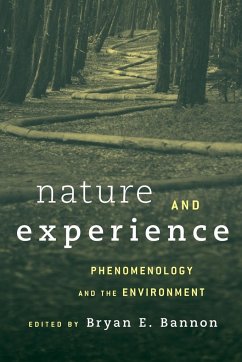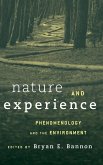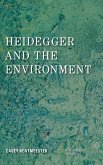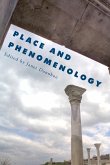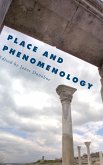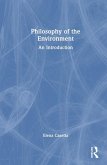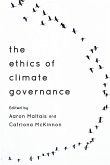Nature and Experience
Phenomenology and the Environment
Herausgeber: Bannon, Bryan
Nature and Experience
Phenomenology and the Environment
Herausgeber: Bannon, Bryan
- Broschiertes Buch
- Merkliste
- Auf die Merkliste
- Bewerten Bewerten
- Teilen
- Produkt teilen
- Produkterinnerung
- Produkterinnerung
This volume presents essays assessing the contributions phenomenology has to make to environmental studies.
Andere Kunden interessierten sich auch für
![Nature and Experience Nature and Experience]() Nature and Experience175,99 €
Nature and Experience175,99 €![Heidegger and the Environment Heidegger and the Environment]() Casey RentmeesterHeidegger and the Environment148,99 €
Casey RentmeesterHeidegger and the Environment148,99 €![Place and Phenomenology Place and Phenomenology]() Place and Phenomenology61,99 €
Place and Phenomenology61,99 €![Human Value, Environmental Ethics and Sustainability Human Value, Environmental Ethics and Sustainability]() Mark RyanHuman Value, Environmental Ethics and Sustainability166,99 €
Mark RyanHuman Value, Environmental Ethics and Sustainability166,99 €![Place and Phenomenology Place and Phenomenology]() Place and Phenomenology166,99 €
Place and Phenomenology166,99 €![Philosophy of the Environment Philosophy of the Environment]() Elena CasettaPhilosophy of the Environment180,99 €
Elena CasettaPhilosophy of the Environment180,99 €![The Ethics of Climate Governance The Ethics of Climate Governance]() The Ethics of Climate Governance62,99 €
The Ethics of Climate Governance62,99 €-
-
-
This volume presents essays assessing the contributions phenomenology has to make to environmental studies.
Hinweis: Dieser Artikel kann nur an eine deutsche Lieferadresse ausgeliefert werden.
Hinweis: Dieser Artikel kann nur an eine deutsche Lieferadresse ausgeliefert werden.
Produktdetails
- Produktdetails
- Verlag: Rowman & Littlefield Publishers
- Seitenzahl: 244
- Erscheinungstermin: 18. Mai 2016
- Englisch
- Abmessung: 229mm x 152mm x 15mm
- Gewicht: 402g
- ISBN-13: 9781783485215
- ISBN-10: 1783485213
- Artikelnr.: 43350228
- Herstellerkennzeichnung
- Libri GmbH
- Europaallee 1
- 36244 Bad Hersfeld
- gpsr@libri.de
- Verlag: Rowman & Littlefield Publishers
- Seitenzahl: 244
- Erscheinungstermin: 18. Mai 2016
- Englisch
- Abmessung: 229mm x 152mm x 15mm
- Gewicht: 402g
- ISBN-13: 9781783485215
- ISBN-10: 1783485213
- Artikelnr.: 43350228
- Herstellerkennzeichnung
- Libri GmbH
- Europaallee 1
- 36244 Bad Hersfeld
- gpsr@libri.de
Edited by Bryan Bannon
Nature and Experience
an Introduction
Bryan E. Bannon / Part I: Phenomenology of Nature / 1. Mythic Enlightenment: Phenomenology and the Question Concerning Nature
Bryan Smyth / 2. Towards a Phenomenology of Nature
Janet Donohoe / 3. Natural Phenomena: The Birth and Growth of Experience
Thomas Greaves / 4. Phenomenology and the Charge of Anthropocentrism
Simon James / 5. Nature
Meaning
and Value
Bryan E. Bannon / Part II: Metaphor
Agency
and the Human relation to Nature / 6. Intersubjectivity
the Environment
and Moral Failure
Mark Thorsby / 7. Metaphor and Weather: Thinking Ecologically about Metaphor
Experience
and Climate
Elise Springer / 8. Ecofeminism
Ecophenomenology
and the Metaphorics of Nature's Agency
Tim Christion Myers / 9. Re-Rivering Environmental Imagination: Meander Movement and Merleau-Ponty
Irene J. Klaver / Part III: Practicing Phenomenology / 10. Paradigms
Praxis and Environmental Phenomenology
Ingrid Leman Stefanovic
Zachary Shefman and Kristina Welch / 11. Re-appropriating the Ecosystem Services Concept for a Decolonization of 'Nature'
Barbara Muraca / 12. Indigenous Experience
Environmental Justice and Settler Colonialism
Kyle Powys Whyte / 13. Music and the Presence of Nature
David E. Cooper / 14. Phenomenological Aesthetics of Landscape and Beauty
Guðbjörg Rannveig Jóhannesdóttir / Bibliography / Index / Notes on Contributors
an Introduction
Bryan E. Bannon / Part I: Phenomenology of Nature / 1. Mythic Enlightenment: Phenomenology and the Question Concerning Nature
Bryan Smyth / 2. Towards a Phenomenology of Nature
Janet Donohoe / 3. Natural Phenomena: The Birth and Growth of Experience
Thomas Greaves / 4. Phenomenology and the Charge of Anthropocentrism
Simon James / 5. Nature
Meaning
and Value
Bryan E. Bannon / Part II: Metaphor
Agency
and the Human relation to Nature / 6. Intersubjectivity
the Environment
and Moral Failure
Mark Thorsby / 7. Metaphor and Weather: Thinking Ecologically about Metaphor
Experience
and Climate
Elise Springer / 8. Ecofeminism
Ecophenomenology
and the Metaphorics of Nature's Agency
Tim Christion Myers / 9. Re-Rivering Environmental Imagination: Meander Movement and Merleau-Ponty
Irene J. Klaver / Part III: Practicing Phenomenology / 10. Paradigms
Praxis and Environmental Phenomenology
Ingrid Leman Stefanovic
Zachary Shefman and Kristina Welch / 11. Re-appropriating the Ecosystem Services Concept for a Decolonization of 'Nature'
Barbara Muraca / 12. Indigenous Experience
Environmental Justice and Settler Colonialism
Kyle Powys Whyte / 13. Music and the Presence of Nature
David E. Cooper / 14. Phenomenological Aesthetics of Landscape and Beauty
Guðbjörg Rannveig Jóhannesdóttir / Bibliography / Index / Notes on Contributors
Nature and Experience
an Introduction
Bryan E. Bannon / Part I: Phenomenology of Nature / 1. Mythic Enlightenment: Phenomenology and the Question Concerning Nature
Bryan Smyth / 2. Towards a Phenomenology of Nature
Janet Donohoe / 3. Natural Phenomena: The Birth and Growth of Experience
Thomas Greaves / 4. Phenomenology and the Charge of Anthropocentrism
Simon James / 5. Nature
Meaning
and Value
Bryan E. Bannon / Part II: Metaphor
Agency
and the Human relation to Nature / 6. Intersubjectivity
the Environment
and Moral Failure
Mark Thorsby / 7. Metaphor and Weather: Thinking Ecologically about Metaphor
Experience
and Climate
Elise Springer / 8. Ecofeminism
Ecophenomenology
and the Metaphorics of Nature's Agency
Tim Christion Myers / 9. Re-Rivering Environmental Imagination: Meander Movement and Merleau-Ponty
Irene J. Klaver / Part III: Practicing Phenomenology / 10. Paradigms
Praxis and Environmental Phenomenology
Ingrid Leman Stefanovic
Zachary Shefman and Kristina Welch / 11. Re-appropriating the Ecosystem Services Concept for a Decolonization of 'Nature'
Barbara Muraca / 12. Indigenous Experience
Environmental Justice and Settler Colonialism
Kyle Powys Whyte / 13. Music and the Presence of Nature
David E. Cooper / 14. Phenomenological Aesthetics of Landscape and Beauty
Guðbjörg Rannveig Jóhannesdóttir / Bibliography / Index / Notes on Contributors
an Introduction
Bryan E. Bannon / Part I: Phenomenology of Nature / 1. Mythic Enlightenment: Phenomenology and the Question Concerning Nature
Bryan Smyth / 2. Towards a Phenomenology of Nature
Janet Donohoe / 3. Natural Phenomena: The Birth and Growth of Experience
Thomas Greaves / 4. Phenomenology and the Charge of Anthropocentrism
Simon James / 5. Nature
Meaning
and Value
Bryan E. Bannon / Part II: Metaphor
Agency
and the Human relation to Nature / 6. Intersubjectivity
the Environment
and Moral Failure
Mark Thorsby / 7. Metaphor and Weather: Thinking Ecologically about Metaphor
Experience
and Climate
Elise Springer / 8. Ecofeminism
Ecophenomenology
and the Metaphorics of Nature's Agency
Tim Christion Myers / 9. Re-Rivering Environmental Imagination: Meander Movement and Merleau-Ponty
Irene J. Klaver / Part III: Practicing Phenomenology / 10. Paradigms
Praxis and Environmental Phenomenology
Ingrid Leman Stefanovic
Zachary Shefman and Kristina Welch / 11. Re-appropriating the Ecosystem Services Concept for a Decolonization of 'Nature'
Barbara Muraca / 12. Indigenous Experience
Environmental Justice and Settler Colonialism
Kyle Powys Whyte / 13. Music and the Presence of Nature
David E. Cooper / 14. Phenomenological Aesthetics of Landscape and Beauty
Guðbjörg Rannveig Jóhannesdóttir / Bibliography / Index / Notes on Contributors

